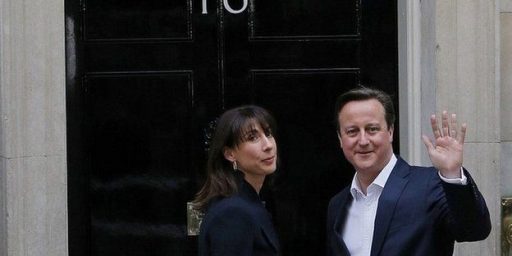No Simple Profile for Terrorists
There’s an interesting article in The Guardian on information purportedly drawn from an MI5 research document that suggests that there’s no simple, easy profile for terrorists:
It concludes that it is not possible to draw up a typical profile of the “British terrorist” as most are “demographically unremarkable” and simply reflect the communities in which they live.
The “restricted” MI5 report takes apart many of the common stereotypes about those involved in British terrorism.
They are mostly British nationals, not illegal immigrants and, far from being Islamist fundamentalists, most are religious novices. Nor, the analysis says, are they “mad and bad”.
Those over 30 are just as likely to have a wife and children as to be loners with no ties, the research shows.
The security service also plays down the importance of radical extremist clerics, saying their influence in radicalising British terrorists has moved into the background in recent years.
I think that’s probably right but I also suspect that over time it’s going to become ever more difficult, particularly in Britain and the other historically ethnic societies of Europe, to arrive at any simple straightforward method of identifying prospective terrorists.
Prevention is likely to remain elusive.
Hat tip: memeorandum





Hopefully governments realize this is the case and stop violating the Constitutional and Human Rights of their citizens. In America, technology and commerce are being abused so that governments can peak into the lives of whomever they wish.
The British has to deal with fragments of the IRA and other internal groups. So I wouldn’t draw to many comparisons with the U.S. That said, I never been a big fan of trying to “profile†a very large group. Some large groups share common characteristics but often have about as many exceptions as not. For example, 70% could share characteristics of a,b,or c but very few share a,b, and c. Profiling is more useful when done with a smaller group such as Al-Qaida. Profiling can be useful but should be use with caution and understand it is more of an art than a science.
I think the problem is if you profile a certain group, and that makes you feel secure, then those who would seek to harm through terrorism will exploit the profile by seeking people who do not fit the profile to do the work.
Hah. The report missed the obvious connection of Anglicans and the 7/11 attacks.
The report probably has some merit if they are lumping 70’s/80’s IRA attacks with todays AQ attacks. But I suspect that at least the public portion is doing a little PC ignoring of inconvenient facts.
If we had set up profiles to capture people like Timothy McVeigh would it have prevented 9/11 ?
All the more reason we have to watch everything everyone does ALL of the time. We can whine about freedom after we are all safe.
And there it is…. exactly so, YAJ.
What we’re seeing here is the normal habit of allowing political goals to over-rule reality.